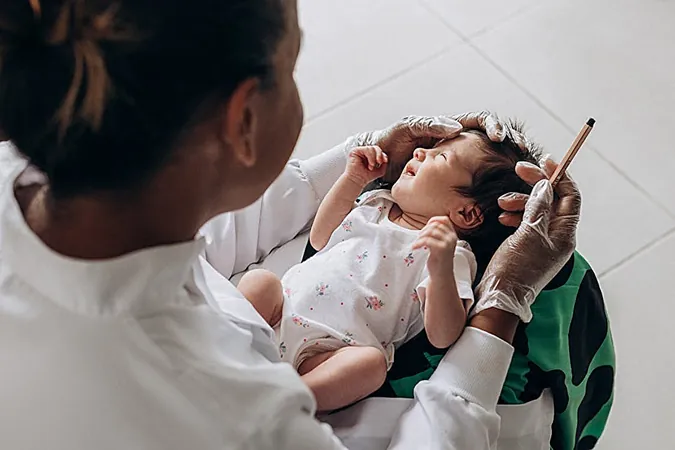
Timing is Everything: How RSV Immunization Can Save Infants from Severe Illness
2025-04-25
Author: Li
The Crucial Role of Timing in RSV Immunization
New findings from Yale research, published in JAMA Network Open, reveal that the timing of RSV immunization is vital for protecting infants from serious illness. Nirsevimab, a cutting-edge monoclonal antibody, is designed to fight off the respiratory syncytial virus (RSV), an illness that can be deadly for infants.
What is Nirsevimab?
Nirsevimab is a seasonal immunization for infants, working by targeting RSV and preventing it from invading human cells. Researchers at the Yale School of Medicine discovered that when administered correctly, this treatment can be up to 85% effective in preventing hospitalizations for infants under a year old. However, its efficacy diminishes significantly after three months, making timely immunization crucial.
The Dangers of RSV
RSV is alarmingly common; nearly every child contracts it by their second birthday. While some may only experience mild symptoms, infants and the elderly face severe risks. "When a child suffers from severe RSV, they literally struggle to breathe due to mucus build-up," states Dr. Carlos Oliveira, who emphasizes the importance of preventive measures.
RSV's Global Impact
Around 1.4 million children under six months are hospitalized annually due to RSV, particularly during the fall and winter months, resulting in approximately 27,000 fatalities worldwide. Unfortunately, no targeted treatments exist, highlighting the importance of preventative immunization.
Nirsevimab: A Game Changer in RSV Prevention
In July 2023, the FDA approved nirsevimab as the first single-dose, long-acting monoclonal antibody for infants. Unlike the previous option, palivizumab, which required monthly injections, nirsevimab offers a more convenient solution.
Insights from Clinical Trials
In a recent study involving approximately 3,000 infants during nirsevimab’s first RSV season, only 10% had received the immunization before requiring medical care. Of those tested, about 680 contracted RSV, with a shocking 166 requiring hospitalization—almost all of whom had not been vaccinated.
The Power of Immunization
While nirsevimab was found to be around 68% effective at preventing RSV infections, it was 85% effective at preventing hospitalization for severe cases. This research confirms that timely immunization can be the difference between a mild illness and a life-threatening situation.
Protecting Our Infants
Given that nirsevimab's effectiveness wanes around 14 weeks, the CDC recommends that infants eight months and younger receive the shot right at the beginning of RSV season, which runs from October to March. The insights gained from Oliveira's study will be invaluable for policymakers as they strategize the rollout of this vital immunization during peak RSV outbreaks.


 Brasil (PT)
Brasil (PT)
 Canada (EN)
Canada (EN)
 Chile (ES)
Chile (ES)
 Česko (CS)
Česko (CS)
 대한민국 (KO)
대한민국 (KO)
 España (ES)
España (ES)
 France (FR)
France (FR)
 Hong Kong (EN)
Hong Kong (EN)
 Italia (IT)
Italia (IT)
 日本 (JA)
日本 (JA)
 Magyarország (HU)
Magyarország (HU)
 Norge (NO)
Norge (NO)
 Polska (PL)
Polska (PL)
 Schweiz (DE)
Schweiz (DE)
 Singapore (EN)
Singapore (EN)
 Sverige (SV)
Sverige (SV)
 Suomi (FI)
Suomi (FI)
 Türkiye (TR)
Türkiye (TR)
 الإمارات العربية المتحدة (AR)
الإمارات العربية المتحدة (AR)